Issue 2 is a milestone for the journal.
Prior to the launch of itinerant space issue 1: pilot (2021), research conversations took place within the School of Communication’s supportive environments. As editors we used the opportunity to bounce research ideas between each other, engage in critical debate, and reflect on findings with our PGR cohort and supervisors. The pilot stage was useful. Our agreed approach served a purpose: to establish academic publishing confidence, to road test itinerant space as an online platform, and fine-tune journal processes.
Issue 2 is a catalyst for knowledge sharing.
It was always in the journal’s five-year plan that issue 2 would build on the learning of the pilot issue to iteratively develop an expanded network of the RCA’s wider doctoral research community, and to stretch beyond the academy. We felt the urgency of our own research, but also the desire to connect with other PGRs in learning more about individual research practices. As an experimental platform, the journal offered a unique opportunity to inform interdisciplinary conversations and modes of research dissemination.
Issue 2 is a process.
The editorial team methodically explored academic peer-review models in the development of processes that would align with the journal’s values and aspirations. We expanded our learning network to include doctoral researchers from the RCA’s Schools and Research Centres, by inviting them to participate as contributors and peer-to-peer reviewers. The intent was to establish a publishing process based on a critical, yet supportive, dialogue between editors, reviewers, and contributors. We also explored a new vocabulary to describe alternative ways of talking about published research. For example, moving from ‘fragments’ to ‘extracts’, and from ‘articles’ to ‘research-in-progress’. This mirrors the intellectual development of PGRs and their individual research journeys. We invited RCA’s PGRs to join in debate, foreground their research experiences, and help shape and inform doctoral-level research conversations.
Issue 2 is an iteration.
To give a taste of this process, each editor has responded to the keyword ‘iteration’:
‘Iterative process affords differences and the act of differing, in the sense of Derrida’s notion of différance. My research argues that artists use dispersal as a strategy to open the potential for political debate, an iterative process. Dispersive strategies put pressure on the frame(s) or ‘structures’ in moving image works. The potential for political debate comes out of the freeing up of thought.’ – Karen Bosy
‘In longitudinal, constructionist participatory practice, multiple versions of methods iterated by community leaders, each operating in different yet overlapping social contexts, expand the possibilities through which participation in social infrastructure can be entered into and experienced.’ – Nick Bell
‘Iterating is an active process of moving toward or closer to a sense of understanding. The practice (or doing) of research invites us to generate the conditions within which iteration might emerge.’ – Kam Rehal
‘Each stage of our research leads to seeing something fresh – an iteration is borne out of curiosity, the experiential, and making sense of the world at that moment.’ – Teal Triggs
Issue 2 is a call to action and a contribution to new knowledge.
The Editorial Team would like to thank the fifteen contributors whose work features in issue 2 and those who worked tirelessly behind the scenes as the journal’s six peer-to-peer reviewers.
